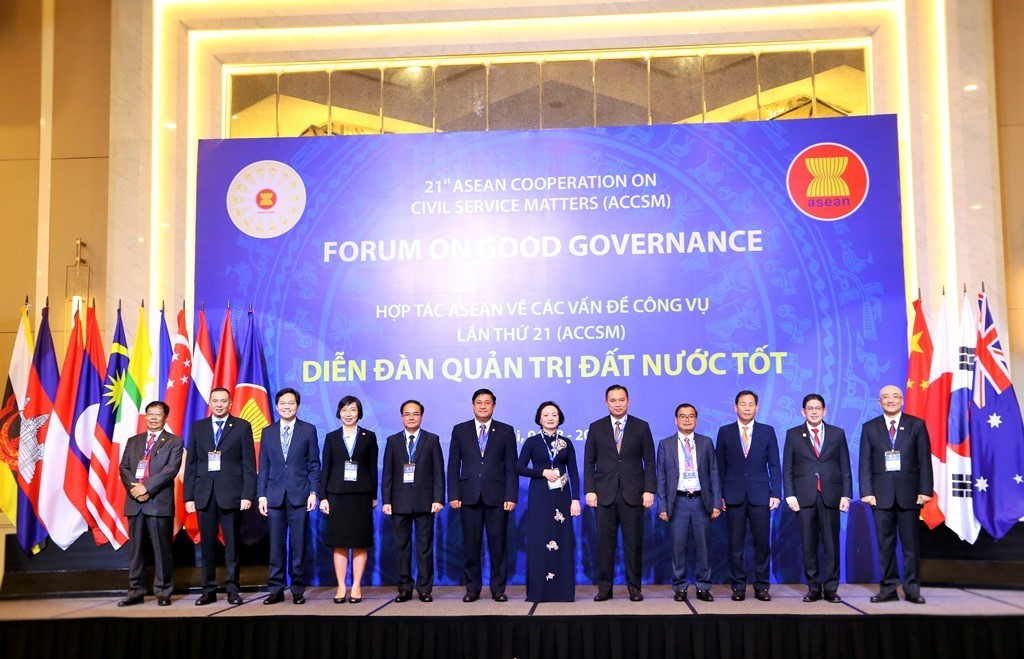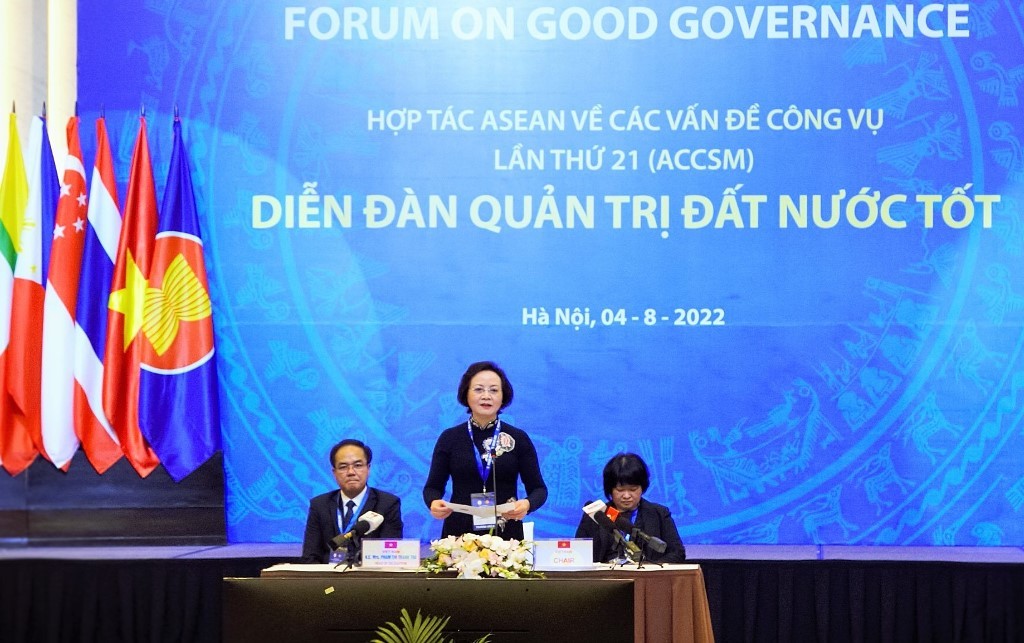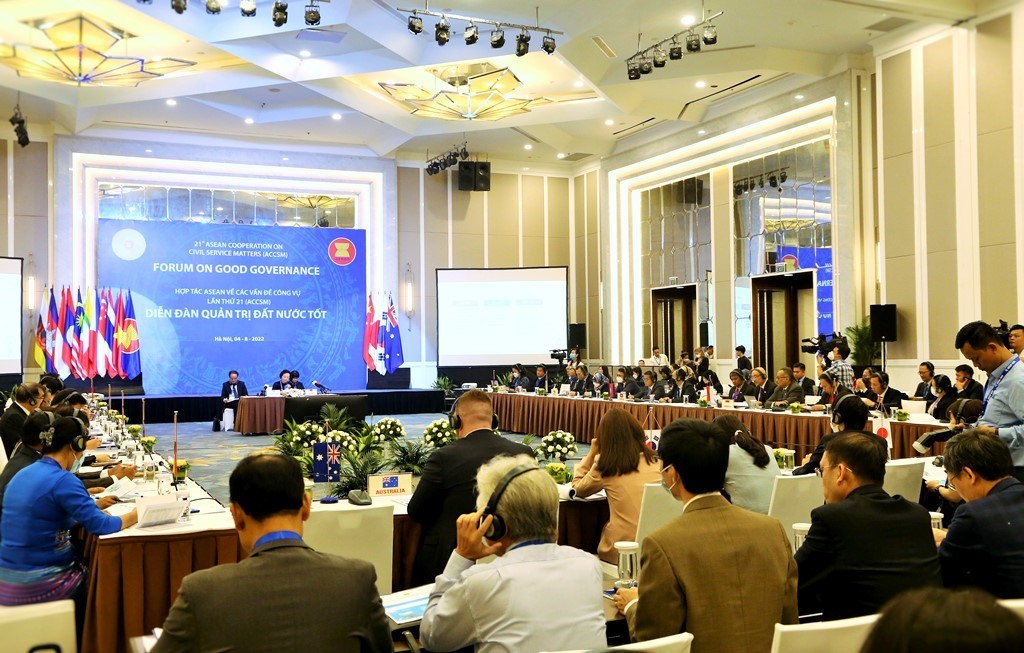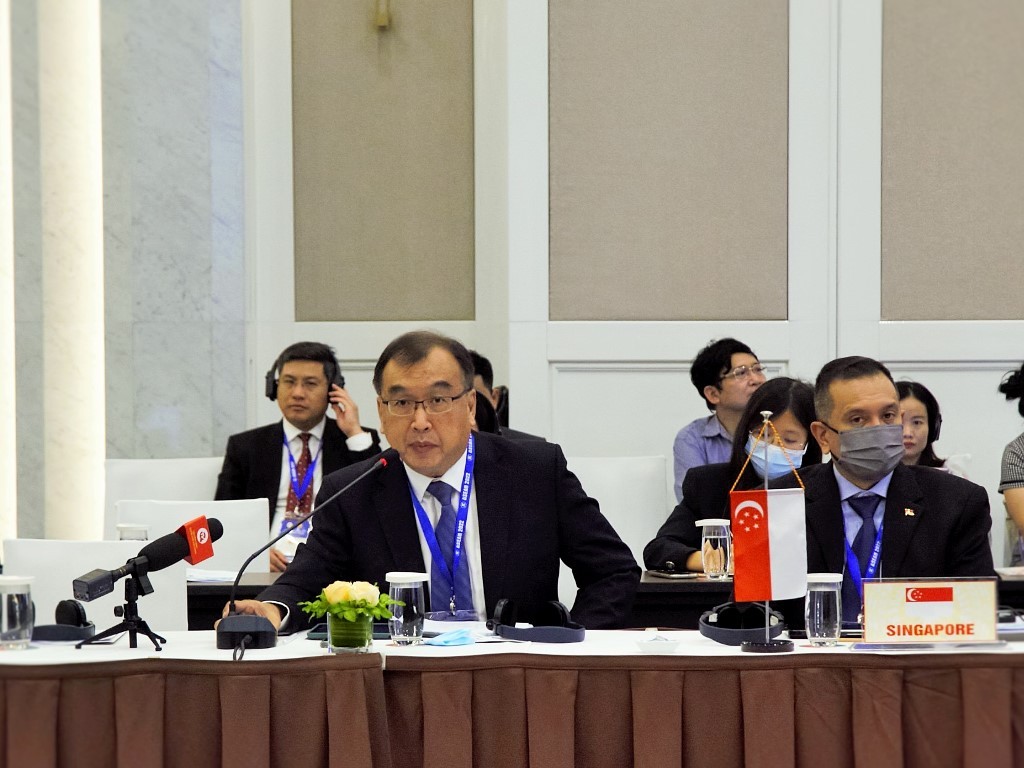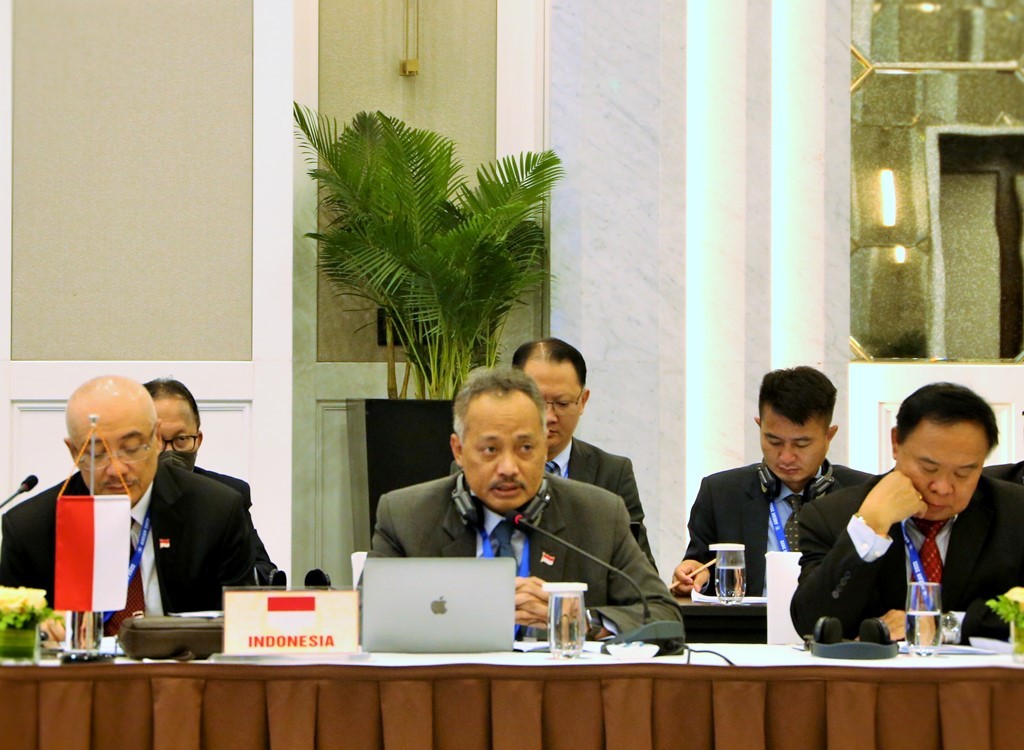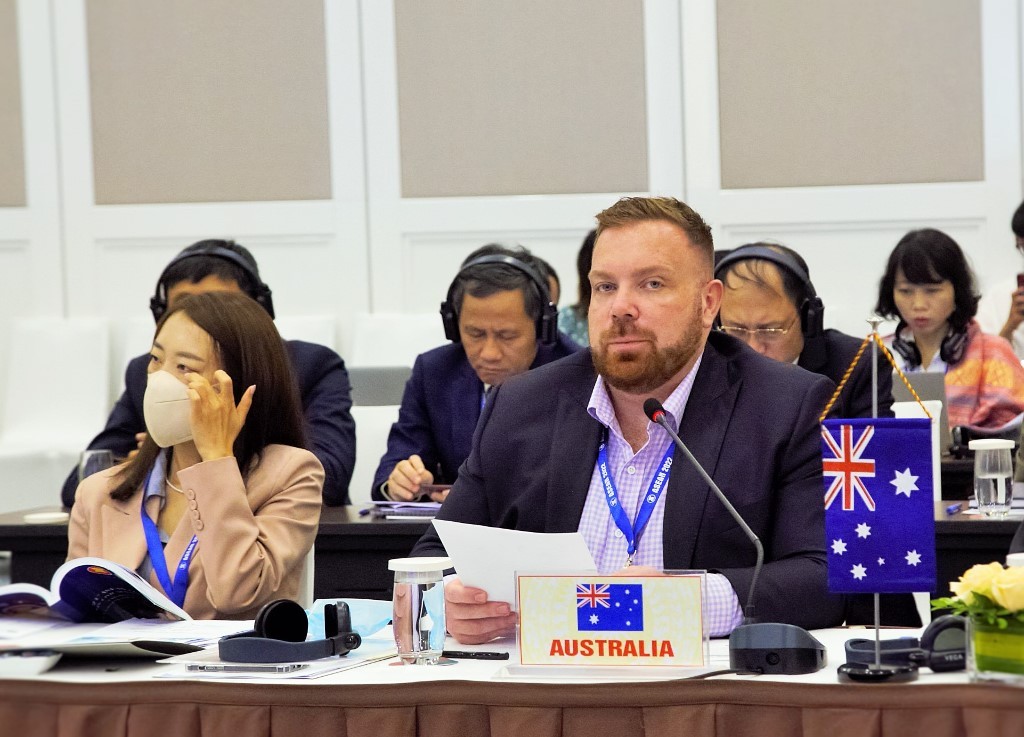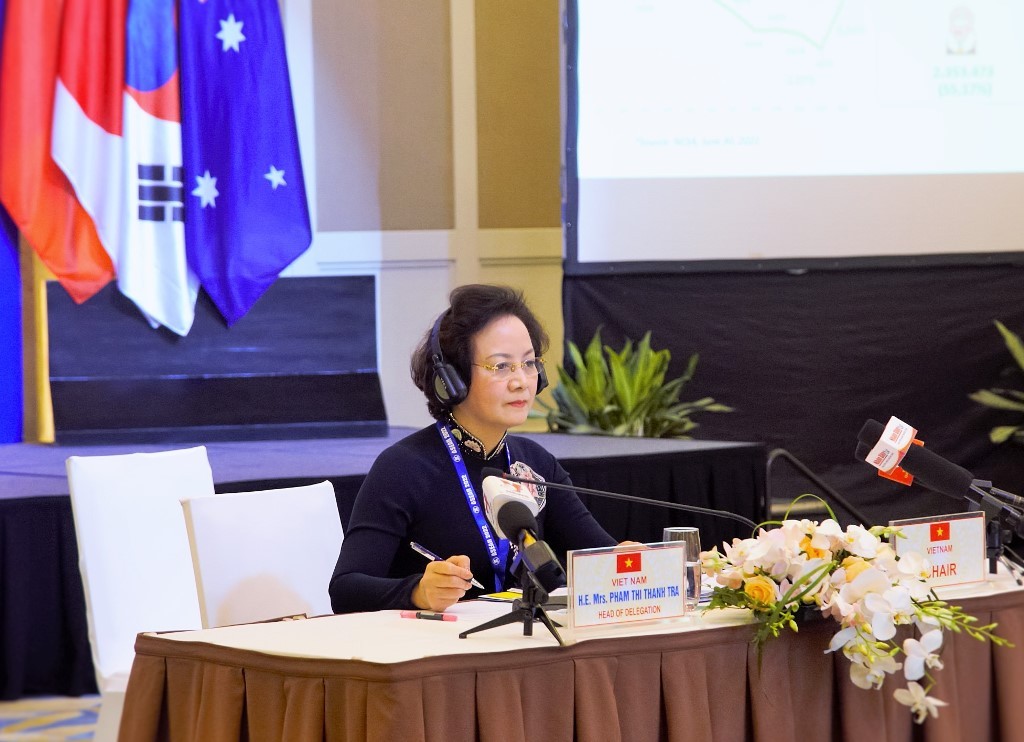On the morning of August 4, in Hanoi, within the framework of the 21st ASEAN Cooperation of Civil Service Matters (ACCSM 21), the Forum on Good Governance was held with the theme: “Renovate civil servant training and upgrading activities for capacity building and meeting international integration requirement”.
Viet Nam Minister of Home Affairs, H.E. Mrs. Pham Thi Thanh Tra chaired the Forum.
Attending the Forum were Heads of civil service from ASEAN and ASEAN Plus Three (APT) countries, senior officials and focal points, the ASEAN Secretariat, the Australian Public Service Commission, representatives of a number of ministries, central agencies and a number of units under the Ministry of Home Affairs.
Speaking at the opening of the Forum, Viet Nam’s Minister of Home Affairs Pham Thi Thanh Tra welcomed delegates from ASEAN countries, APT, and the ASEAN Secretariat to attend the ACCSM 21 in Hanoi, Viet Nam.
According to Minister Pham Thi Thanh Tra, ASEAN countries have grown stronger, more politically mature, more economically sustainable, more institutionally complete, and more multilaterally engaged after more than five decades of establishment and development. This is achieved thanks to the very important contribution of the dedicated, enthusiastic, responsible, and increasingly professional, knowledgeable, and ethical ASEAN civil servants.
However, Minister Pham Thi Thanh Tra also said that recent great and unpredictable changes and challenges had made the civil service of ASEAN countries and APT reflect on themselves. It is urgent to renovate and improve service quality and efficiency to truly become people-oriented and people-centered civil services. This also requires the contingent of civil servants in all countries to change, be more flexible, agile, creative, and learn continuously.
Minister Pham Thi Thanh Tra emphasized that this is the reason for the Ministry of Home Affairs of Viet Nam to choose the theme of the Forum as “Renovate civil servant training and upgrading activities for capacity building and meeting international integration requirement”.
At this Forum, with information and experiences shared by Indonesia, Singapore, Thailand, Viet Nam and especially the Australian Public Service Commission, Minister Pham Thi Thanh Tra hoped that countries would not only learn from successful stories, but also from difficulties in policy formulation and implementation to improve the quality of human resources in the civil service.
According to Minister Pham Thi Thanh Tra, the Forum was an opportunity for countries to listen, share, and learn, thereby narrowing the gap and encouraging cooperation among ASEAN countries, APT and partner countries to ensure the adoption of effective governance principles. She also hoped that the delegates would enthusiastically, actively exchange and discuss on the basis of sincerity, trust and responsibility to jointly build a modern and responsive ASEAN civil service.
At the Forum, Mr. Pham Minh Hung, Director of Administrative Reform Department, Ministry of Home Affairs of Viet Nam discussed the topic “Renovate civil servant training and upgrading activities for capacity building and meeting international integration requirement”.
According to him, the system of institutions and policies for training cadres, civil servants, and public employees of Viet Nam has been continuously improved. Up to now, it has basically ensured synchronous, scientific, unified, and satisfying results and met the requirements of promoting administrative reform and international integration.
The system of training institutions for cadres, civil servants, and public employees has been gradually arranged in a streamlined manner, operating effectively and efficiently, and the training quality has been continuously improved. The contingent of lecturers and organization of professional training for the training management staff of the ministries, branches and localities is concerned and effectively implemented.
Training programs and contents for cadres, civil servants, and public employees are continuously reviewed, revised, renewed, and improved in quality, ensuring scientific and practicality, and being suitable for different target groups. The quality management of training is concerned and implemented effectively, closely following the provisions of the law on the quality assessment of cadres, civil servants, and public employees. The evaluation criteria and contents are continuously improved so that the quality assessment of cadres, civil servants, and public employees is more and more accurate, thereby associated with Vietnamese conditions and international practices.
Training results are constantly improved in both quantity and quality, gradually meeting the requirements of building a contingent of professional, capable, qualified cadres, civil servants, and public employees with the ability to adapt and integrate into the world.
In general, renovating civil servant training and upgrading activities for capacity building and meeting international integration requirement is an indispensable and objective requirement of Viet Nam in the process of reforming and promoting socio-economic development and international integration today.
Sharing about Singapore’s experience in developing human resources in the public sector, the Singaporean representative said that the Singapore civil service respects their staff and believes that each civil servant has talents and abilities that need to be developed to their full potential. The training builds a continuous learning culture and encourages civil servants to improve their skills, knowledge, and capabilities, ensuring each individual has a lifetime job.
Singapore also provides training that fosters a commitment to excellence and public service improvement. Training contributes to a competent, innovative, and cutting-edge civil service that can create the necessary conditions for a successful and vibrant Singapore.
Regarding learning and development policy, each Singaporean civil servant is entitled to 100 hours of training per year. Training is a shared responsibility of both individual public servants and their managers. Training should meet the needs of both individuals and organizations. In principle, the ratio of 60/40 is guaranteed for work-related training versus self-development training.
At the Forum, Indonesia, Thailand, and especially the Australian Public Service Commission also shared their successful lessons as well as difficulties in implementing and adopting policies to improve the quality of life and the quality of human resources in the civil service.
During the discussion, the delegates (1) exchanged, dialogued, and shared information among countries in the region, with the Australian Public Service Commission on innovation in training to improve the quality of civil servants as well as developing high-quality human resources and the challenges posed to the ASEAN civil service, especially in the context of the changing global and regional situation with the emergence of unprecedented new challenges, (2) proposed solutions to promote ASEAN cooperation in the new situation, (3) strengthened cooperation with Plus Three countries of ASEAN and ACCSM, and (4) shared experiences among countries on how the civil service responds and adapts to emerging issues such as the COVID-19 epidemic…
Closing the Forum, Minister Pham Thi Thanh Tra sincerely thanked the participation, contribution, and enthusiastic sharing of delegates and member countries at the Forum.
Minister Pham Thi Thanh Tra believed that the Forum has helped delegates have a more comprehensive and diverse view of innovative strategies and solutions in training to improve the quality of public employees as well as the requirements for innovation in government operations in each country. She also hoped that those experiences would be considered and selected so that they could be applied in accordance with the context of each country, helping to build a truly innovative, modern, and professional civil service and bring about a better standard of living for citizens in each country.
(Source: https://moha.gov.vn)


